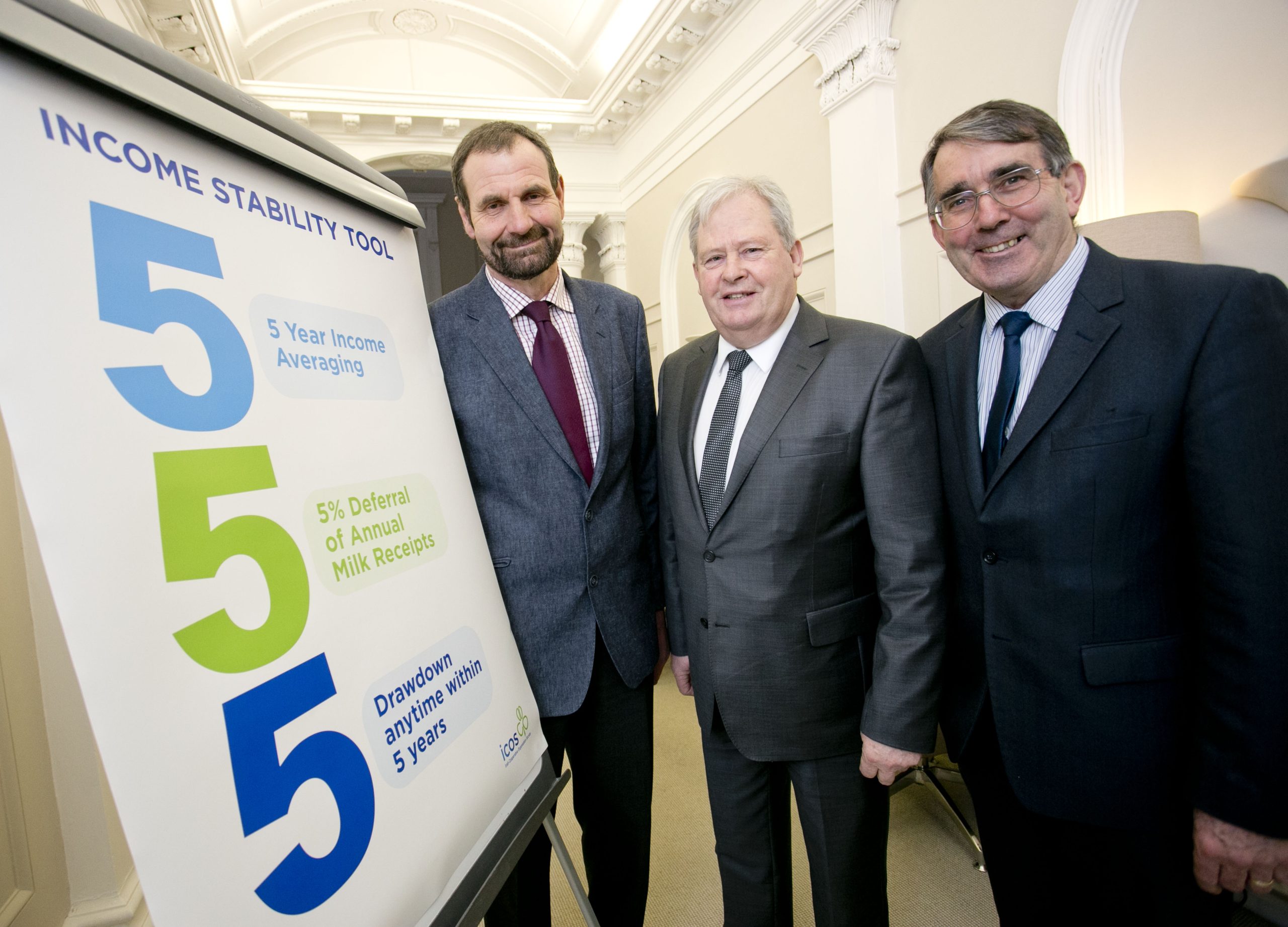ICOS Launches an Innovative New Proposal to Counter Dairy Income Volatility

ICOS has launched a new agri-taxation proposal aimed at combating extreme income volatility in the dairy sector. The objective of our proposal is to address a weakness in the existing income averaging system, which provides a benefit to farmers when profits are rising but can be a cost when profits are falling. In addition, ICOS is seeking to re-ignite the debate surrounding income deferral tools used in Australia and Canada to help their farmers to deal with volatility. Moreover, the ICOS proposal seeks to address the stumbling block of EU state aid rules, which has prevented the Government from considering income deferral as a policy option. ICOS believes that the super levy deferral scheme adopted last year has established an important precedent, as the measure was adopted using the De-Minimis Regulation taking the interest relief as a State Aid.
The proposed measure known as the ICOS “5-5-5” Income Stability Tool would allow farmers, who are participants in the 5 year income averaging scheme, to voluntarily defer up to 5% of their milk receipts in any given year. The money would be retained in their names in a recognised, interest bearing fund, which would be managed by their co-op, as a loan-stock-type instrument. The money can be drawn down at any time, and subject to income tax at the time of draw down, but in any case, the funds must be drawn down within 5 years.
While this proposal on its own will not solve income volatility within the dairy sector, we believe it can play an important role in terms of helping farmers to manage the worst extremes. Speaking at the launch in Plunkett House on 09 February, the ICOS President, Mr. Martin Keane stated that “ICOS has developed a workable and straightforward agri-taxation measure that will help farmers, especially during years of low milk prices. We have devised the “5-5-5” scheme in order to comply with EU state aid rules and we urge the incoming Government to address this matter in the programme for government and budget 2017.”
The ICOS Dairy Committee Chairman, Jerry Long added “The “5-5-5” scheme will allow a dairy farmer participating in income averaging during a good year to defer a modest amount of income into a recognised fund, in order to draw down this income during periods of low milk prices. The ICOS “5-5-5” scheme aims to improve the current income averaging system, which can have negative consequences for farmers when profits are falling.”
When examining the milk income of a typical 400,000l supplier, over a nine year period, with a milk price ranging from 25c/l to 40 c/l, the income after tax under the current income averaging system ranges from €8,170 to €56,170. While, the volatility under the ICOS proposal ranges from €23,170 to €48,170.

At the launch, Martin Keane concluded by stating that “this is only one of a series of measures which needs to be introduced to counter dairy market volatility. Dairy processors are investing heavily in research and development in order to move the industry out of the most volatile commodity markets, focused on developing new routes to markets, committed to helping their suppliers to improve on-farm efficiency and are dedicated to the roll out of fixed price schemes. In addition, the co-operative movement supported the milk price in 2015 to the tune of €100 million. However, the ball is now with the incoming Government to play its part by introducing a practical and worthwhile agri-taxation scheme such as the ICOS “5-5-5” Income Stability Tool.”
By Eamonn Farrell
ICOS Agri & Food Policy Executive
For more information, a comprehensive Q&A is contained elsewhere in this month’s newsletter.